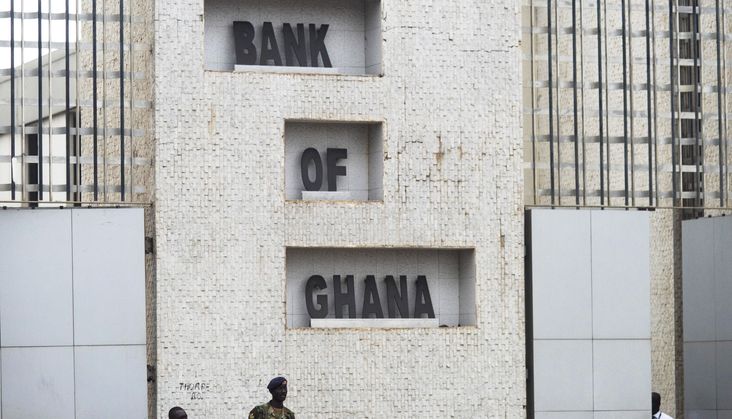The Bank of Ghana has approved the recapitalisation plans submitted by undercapitalised banks, the Staff Report by the International Monetary Fund dubbed “2023 Article IV Consultation" has stated.
Undercapitalised banks will at a minimum inject one-third of the capital required annually for each of the three years ending in 2025 to reach a 13.0% Capital Adequacy Ratio without regulatory forbearance.
So far, most banks have submitted their recapitalisation plans.
“The BoG [Bank of Ghana] will initiate corrective measures by end-March 2024 against banks that fail to uphold these recapitalisation requirements (new structural benchmark). In the short term, the BoG [Bank of Ghana] stands ready to deploy contingency measures if needed to ensure financial sector stability.
The Bretton Wood said this move will ensure that banks’ capital needs have been estimated based on reasonable forward-looking assessments of losses from government debt restructuring and increases in Non-Performing Loans.
NIB’s insolvency plan to be addressed by end-2024
“The authorities [government, BoG] also aim to address the legacy issues of the financial sector and strengthen the governance of state-owned banks. The remaining tasks from the earlier sector cleanup include addressing the challenges of NIB and long-standing undercapitalization of several special deposit taking institutions (SDIs)”.
It added that BoG and the Ministry of Finance will design and begin to implement, by end-March 2024, a credible, comprehensive, and cost-effective plan that seeks to address NIB’s insolvency challenges by end-2024.
To limit the buildup of additional risks until this plan is concluded, the Fund’s Staff Report said the BoG is committed to enhancing the monitoring of NIB and to further imposing appropriate constraints on key risk areas.
It pointed out that the orderly resolution of other Specialised Deposit Taking Institutions and fund management firms, as well as the outstanding payouts to clients of Securities and Exchange Commission (SEC)-licensed fund management companies will be finalised by end-2024.
Any payouts by the government will be made through a burden-sharing approach that will minimize fiscal costs.
Again, it said the authorities will also design a strategy to ensure that state-owned banks adopt sound governance principles, business models, and risk management systems to ensure their long-term viability and facilitate orderly government exit.
Latest Stories
-
Strategic Partnerships: Unlocking growth beyond internal capacity
42 minutes -
Nigerian boxer’s death: GBA spokesperson questions probe committee’s motives
44 minutes -
Doctors at Ridge Hospital ‘are overburdened’ as nurses strike bites – Medical Director
48 minutes -
You’ll pay ‘Dumsor Levy’ even when you are walking – Alhassan Tampuli asserts
50 minutes -
Prof. Bokpin believes stabilizing the cedi at GH₵10–12 is the right approach
54 minutes -
‘Ghana sprinting has reached crescendo of the world’ – Fuseini hails Saminu’s 100m world-leading run
55 minutes -
They took out E-levy and brought E-levy Pro Max – Alhasan Tampuli reacts to ‘Dumsor Levy’
57 minutes -
Ghana’s neighbour Togo named in Trump’s latest US travel ban proclamation
1 hour -
BoG Governor announces plans to block leakages in remittances space
1 hour -
Ghana Premier League: Hearts and Kotoko will learn from Eleven Wonders in five years – CEO
1 hour -
Dr. Samuel Dotse champions Climate Action and Financial Mobilisation at 69th GEF Council Meeting in Washington, D.C. USA
2 hours -
Day 2 of Nurses’ strike: Ridge Hospital wards deserted, patients stranded
2 hours -
Canada-based Rektron Group to acquire major stake in Ghana’s AT Ghana
2 hours -
Emergency services paralyzed as nurses’ strike grips Ghana’s public hospitals
2 hours -
MUSIGA and Copyright Office pledge stronger collaboration to tackle music industry challenges
2 hours

